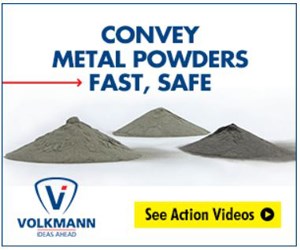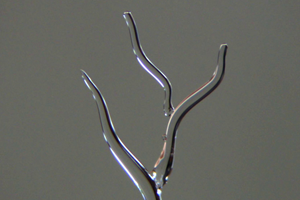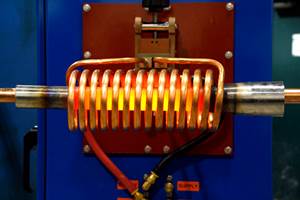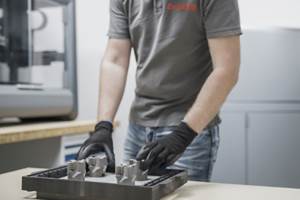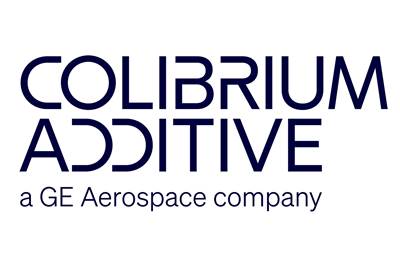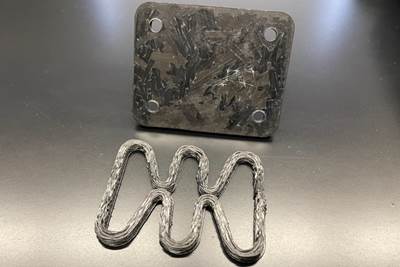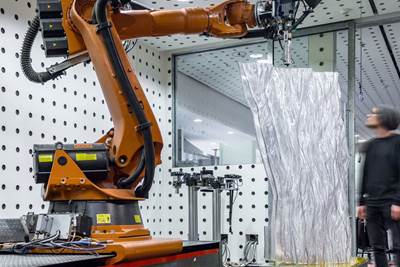Mantle’s 420 Stainless Steel Material Improves Toolmaking Processes
The hard strength material enables engineers and manufacturers to produce production-grade tooling up to 80% faster — enhancing strength, corrosion resistance and polishability for diverse applications, particularly medical devices and conformal cooling components.
Deep-ribbed medical device component mold insert printed with Mantle 420 Stainless Steel. Source: Mantle
Mantle has developed the 420 Stainless Steel for its metal 3D printing system for tooling. The material improves toolmaking processes, enhancing speed and efficiency while reducing labor requirements, which is especially beneficial in industries such as medical that require corrosion-resistant tooling. The material reduces the time, cost and labor to produce tooling, especially for medical device and cleanroom applications, where stainless steel is used.
The company says the 420 Stainless Steel is chemically equivalent to traditional 420 stainless steel, which is renowned for its high strength, hardness, corrosion resistance and polish ability. As it is chemically equivalent to traditional stainless steel, no changes are required if performing secondary operations
The 420 Stainless Steel is a preferred mold material for a wide range of tooling applications, including components with conformal cooling and medical device tooling, as it reduces the time and cost to produce conformally cooled tooling components.
Mantle’s 420 Stainless Steel enables manufacturers to rapidly produce production-grade tooling during prototyping and product development, thereby shortening the time to produce steel tooling for validation part molding by as much as 80%.
“We are excited to launch this material and make it available for all of our customers,” says Ted Sorom, Mantle’s co-founder and chief executive officer. “By combining the speed and cost reductions enabled by Mantle’s tooling-focused printing system with 420 stainless steel, we help our customers set a new standard for the speed of their product development.”
Mantle says the 420 Stainless Steel is a critical mold material for the medical device industry. “This announcement emphasizes Mantle’s commitment to the continuous improvement of their precision tooling technology,” say Melanie Sprague, SVP, health care PMO and applications at Spectrum Plastics Group, a DuPont Business. “We look forward to leveraging this material and the Mantle platform to continue providing our customers with the highest quality medical devices.”
Enhancing Tooling Applications With 420 Stainless Steel
The 420 Stainless Steel is especially beneficial for tooling applications that employ conformal cooling channels. These channels, only achievable through additive manufacturing, enable more efficient cooling than traditional cooling methods, improving molding performance and reducing cycle times. The material has excellent corrosion resistance and eliminates the concern of conformal cooling channels clogging due to rust.
Examples of key applications in 420 stainless steel include:
-
Deep-ribbed medical device component mold insert printed with Mantle 420 Stainless Steel. This tool is well suited to fabricate with Mantle’s technology as the deep ribs would otherwise have required extensive sinker-EDM work, adding substantial cost and time. With Mantle, the insert can be printed in just 2.5 days.
-
Medical luer fitting mold insert printed with Mantle 420 Stainless Steel. There are 12 tool variations that can be printed, fully unattended, in just 3.5 days.
Metal 3D Printer Built for Tooling
Mantle says its precision metal 3D printing technology is well suited for printing precision tooling, meeting the industry’s stringent requirements for accuracy, surface finish and tool steel properties that professional toolmakers demand. The 420 Stainless Steel is the latest material in its family of flowable metal pastes, which are precisely tuned to produce best-in-class accuracy and surface finish. Like all other Mantle steels, Mantle’s 420 Stainless Steel requires no modifications to toolmaking workflows for secondary operations such as texturing, polishing, welding and machining.
Mantle’s 420 Stainless Steel will be released to customers in the second half of 2024 via an over-the-air software update. Customers can deploy Mantle’s 420 Stainless Steel without any modifications to hardware; only an over-the-air software update is required.
Related Content
Ice 3D Printing of Sacrificial Structures as Small as Blood Vessels
Using water for sacrificial tooling, Carnegie Mellon researchers have created a microscale method for 3D printing intricate structures small enough to create vasculature in artificial tissue. The biomedical research potentially has implications for other microscale and microfluidics applications.
Read More3D Printing Supports Induction Coils — and Emergency Needs
As a participant in Michigan’s Project DIAMOnD initiative, Tucker Induction Systems received a 3D printer to use any way it saw fit, provided the capacity remains available in case of emergency. Use cases and lessons learned as part of this distributed manufacturing network.
Read MoreCopper, New Metal Printing Processes, Upgrades Based on Software and More from Formnext 2023: AM Radio #46
Formnext 2023 showed that additive manufacturing may be maturing, but it is certainly not stagnant. In this episode, we dive into observations around technology enhancements, new processes and materials, robots, sustainability and more trends from the show.
Read MoreTaking the Leap into Additive Manufacturing
SolidCAM’s partnership with Desktop Metal, and its in-depth experience in combined metal 3D printing and CNC finishing, is aimed at making additive manufacturing accessible and profitable for job shops and other manufacturers.
Read MoreRead Next
GE Additive Rebrands as Colibrium Additive
As part of the brand name transition, both the Concept Laser and Arcam EBM legacy brands will be retired.
Read MoreTo Improve Performance of Compression Molded Composites, Add 3D Printed Preforms
9T Labs' Additive Fusion Technology enables the manufacture of composite structures with as much or as little reinforcement as is necessary, using 3D printed continuous fiber preforms to add strength just where needed.
Read More3D Printing Brings Sustainability, Accessibility to Glass Manufacturing
Australian startup Maple Glass Printing has developed a process for extruding glass into artwork, lab implements and architectural elements. Along the way, the company has also found more efficient ways of recycling this material.
Read More


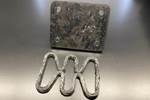







.jpg;maxWidth=300;quality=90)

